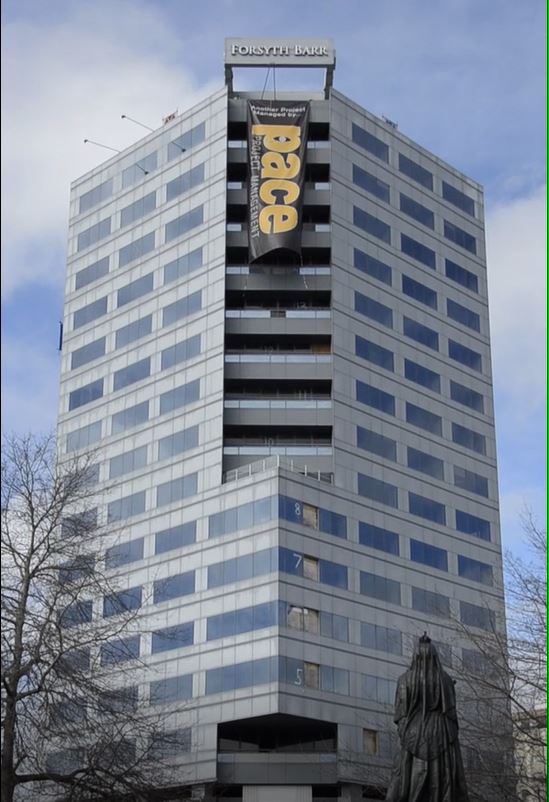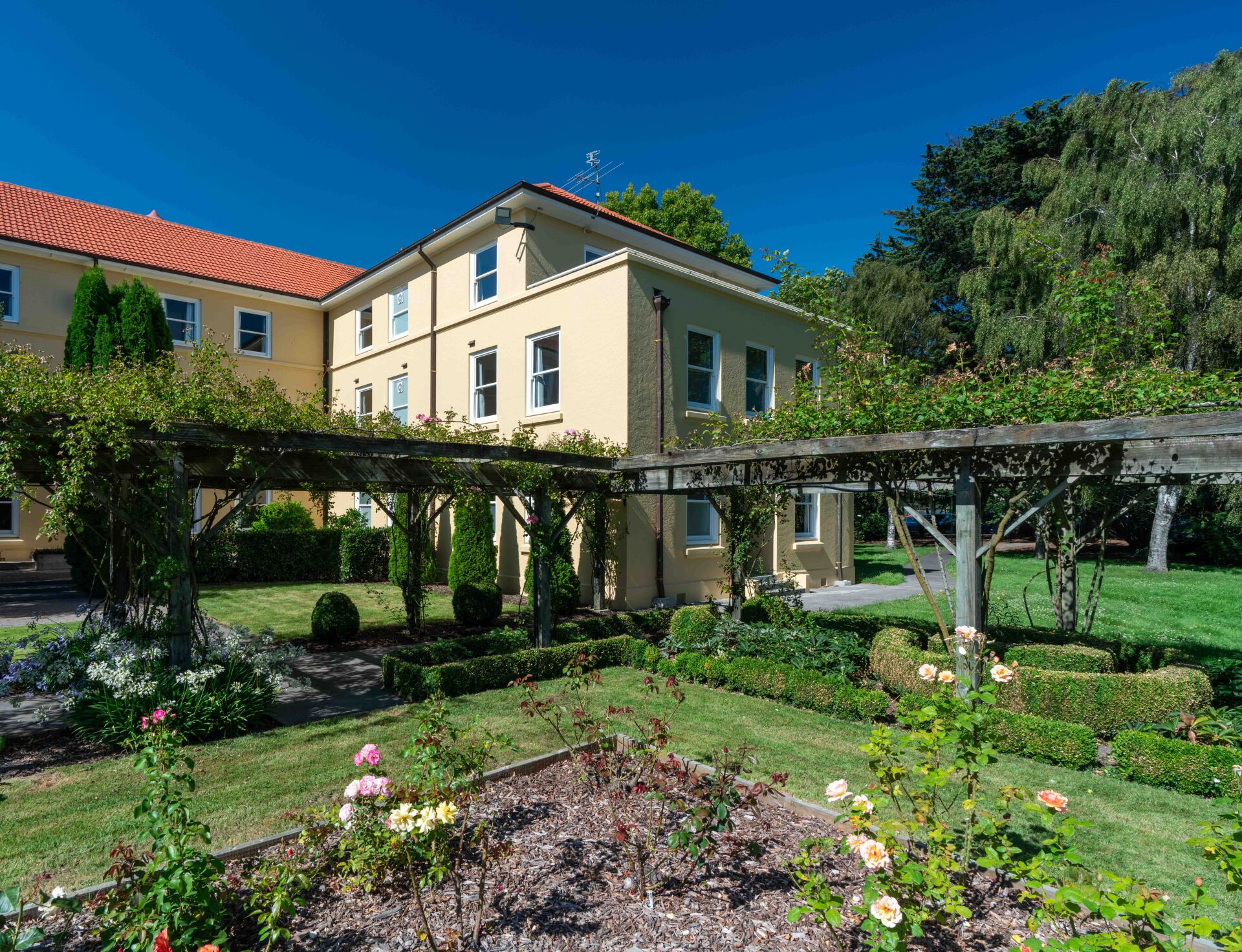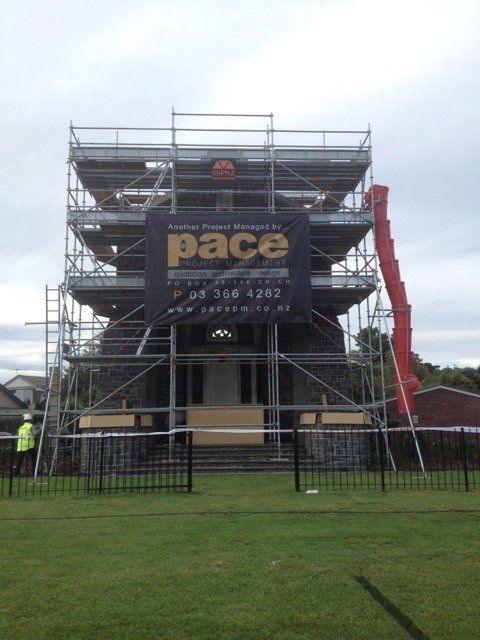Project management at Pace
Pace Project Management is based in Christchurch and has been in the construction project management industry since 2000. It is a nationwide project management company and its team members have developed a wide range of skills.

"We are driven by a pragmatic approach to ensuring our clients' objectives are realised. By aligning our international experience with our local knowledge we can ensure your construction project is delivered on time, on budget and to the quality you expect," says PACE Project Management director Andrew Christian.
"At Pace Project Management we view our client relationships as partnerships and tailor the management of every project to that partnership - whether it's pure project management, development management or construction management of a project from conception through to completion."
"The open nature of our partnerships enables us to reduce the risk to the stakeholders and maximise outcomes."
Origins of modern project management
Wikipedia describes project management (PM) as 'the discipline of initiating, planning, executing, controlling, and closing the work of a team to achieve specific goals and meet specific success criteria'. The general idea
of PM goes back to the late 19th century. However, we can trace our current concept of PM to as recently as the 1950s.
Henry Gantt was one of the originators of PM as we know it. With his creation of the Gantt chart, a now universally recognised visual management tool, Henry's name is one you'll often come across in PM. Henri Fayol's development of the five management functions, the precursors to our current five PM phases, cemented his position as one of PM's founding fathers.
While PM tools were prevalent in the space, government, engineering and military sectors, soon private businesses began to understand the benefits of work organised around a specific project. A clear way to manage these special projects emerged when companies realised that coordination and communication at every level, across business units and including different areas of expertise, was crucial to their overall success.
What is a project manager?
A project manager is the person who leads the project team and together accomplish the project goal. A project manager's leadership is usually temporary, in order to accomplish a specific project.
While every management position incorporates time management, organisation and people skills, project managing necessitates a singular focus affected by resources and results dictated by a designated timeframe. Pace Project Management has developed the personnel with these skills and the experience to complete your construction project to time and budget.
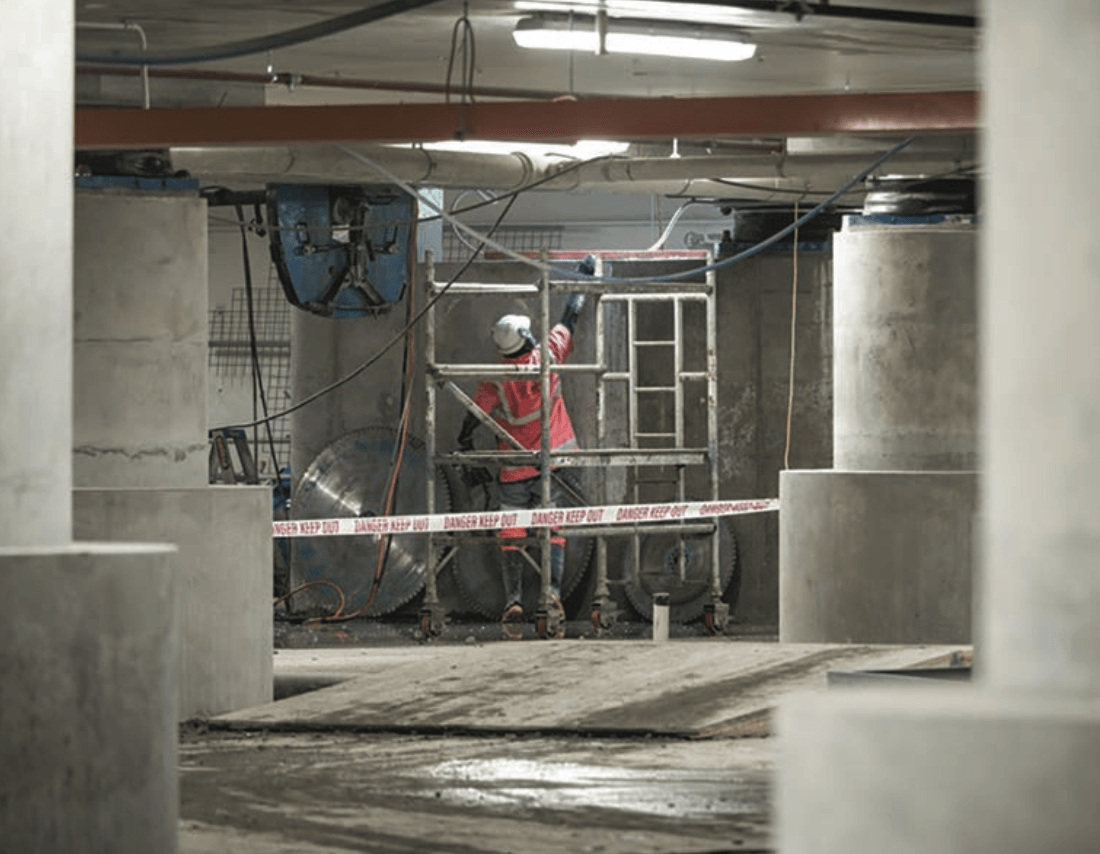
Choosing the best project manager to avoid project failure
Choosing the best project manager for
the job can mean the difference of the project's success or failure. The manager plays a crucial part in taking any project from concept to completion. He or she must have the technical and soft skills needed to orchestrate every detail that comprises the project strategy. Mistakes result in missed milestones, wasted time and money.
The team leader must have strong critical thinking skills to anticipate any risks so that he/she can create contingencies along the way. A PM must be able to articulate what each team member's goals and precise lines of communication are. As you may imagine, successful projects don't just happen. A successful PM would be an established leader, possessing good communication, conflict resolution, time management and critical thinking skills. Pace Project Management, not only has skilled project managers, but has office support and systems in place, developed over 17 years in business.
The management process
The following are the five project management phases used to deliver a successful project outcome which apply to every project, not just a construction or fit- out project:
- Initiation Phase. This step includes the formal commencement of the project and the scope explanation. In a construction project, it will outline the purpose of the project and define the scope of the project and usually the client brief.
- Planning Phase. The project manager formulates the best strategy for the team to accomplish the client's objective. It may fall on the project manager to choose the team members, in addition to requisitioning other resources. Setting the timeline, budget, schedule and communication lines would also take place during this phase.
- Execution Phase. The project manager will implement and oversee all activities that will create the outcomes as outlined in the project plan. In a construction project, this will usually be the on-site construction phase.
- Control Phase. Execution and control occur simultaneously. The project manager monitors the team assuring that the projected performance from the planning phase becomes a reality.
- Closure Phase. During this last stage,
the project manager will facilitate the finalisation of any administrative tasks, reporting documentation, updating and present the resulting deliverable(s) to the client. You can calculate your individual managerial and your project team's success by answering one important question:
Did you meet and/or exceed the client requirements for the project?
Wrap Up
Implementing change efficiently and effectively is the project manager's job. Each project includes a specific timespan during which your team executes numerous activities. The project manager's goal is to meet the client's needs, whether internal or external, while hitting milestone targets and staying under budget. Expertise in planning, monitoring the team and providing the support they need is the key to successful project execution.


What it all means to a Pace Project Management client
Construction project management is
about meeting and exceeding the client's expectations. A very important element of gaining positive outcomes for a construction project is by carefully managing expectations at the start. The professional project manager will elicit from the client the criteria for the project and work with the client to ensure those expectations are realistic.
Expectations for a commercial property will typically include:
- A building that will attract tenants.
- A building that gives the client an acceptable return on investment.
- A building that meets the building code as a minimum, and where possible, exceeds it.
- An appealing and potentially environmentally friendly building.
- A timely and well executed build phase which gives prospective tenants and the client certainty of occupation.
- The life cycle-cost of the building that will acceptable to the client.
Project Management . Pace provides upfront project management by assembling a project team to follow the project through. In the current environment in Christchurch it may be necessary to have the design of certain types of buildings led by the structural engineer, whose input around the new structural code may significantly affect the design. The foundations and structure can be up to 30 percent of the total construction cost, so to keep the overall construction budget to an acceptable level, the structure is the first element that has to be appraised and budgeted.
The structural engineer will work closely with the architect to ensure a new building has enough "structure" to be economically constructed and has the look the architect and project owner are trying to achieve. The project manager has to ensure the client's expectations are met as closely as possible in this process. The project manager is the leader of the consultant and construction teams and their role is to manage and mentor this team to ensure that the objectives are met harmoniously and expeditiously.
Key project management functions include:
- Provide independent professional advice
- Develop and finalise the project brief, including objectives
- Project structuring
- Establish communication, reporting and authorisation procedures
- Scoping, selecting and appointment of design consultancy services
- Progressive definition and refinement of the budget and programme
- Project master planning and scheduling, including planning project timelines, monitoring and managing progress to ensure milestones are achieved
- Budget establishment and cost management
- Design review management, including incorporation of sustainable features
- Buildability review o Value engineering o Quality assurance
- Development of appropriate procurement and contractual procedures and documentation
- Manage the consent and approval process
- Contractor selection and appointment
- Project start-up
- Management and administration of owner/ designer and owner/contractor contracts
- Engineer to contract, where appropriate
- Decision, approval and change management
- Health and safety management
- Manage the coordination between separate contractors
- Compliance management
- Risk analysis and management
- Project completion, commissioning, handover and close out.
Development management . Pace Project Management manage all key functions surrounding the project, including bulk and location studies, finance and feasibility and the facilitation of the building process through to completion and hand-over. Development management can be an all-encompassing role, with Pace directly involved in all levels of the development.
Key development management functions include:
- Site assessment and selection
- Bulk and location and feasibility analysis (master planning)
- Working with the client to ensure the project meets pre-development objectives of sales and leasing
- Market research
- Managing architectural and design professionals
- Providing independent, professional and strategic advice
- Project completion and post project audit.
The Pace Project Management difference
In the process, Pace Project Management uses in-house quantity surveying expertise to establish the viability of the project and after liaising with real estate professionals - who will provide the market rental rates for the proposed building.
Pace provides the client with a development budget for the project, including the projected return on investment. At this stage the project's viability can be ascertained and changes made if required.
Timeframe/Accountability . The proposed program for the project is generally set at this stage with timeframes for each individual stage ascertained. Once the timeframes a nd works within each stage are known, they are incorporated to further the refine the project program.
Compliance . Pace ensure the budgetary requirements are met by reviewing the drawings and project budgets at the 30 percent design stage, again at 60 percent design stage and then just prior to building consent being submitted to the council. The building consent is the critical path of the project at this stage, as works cannot start on site until the consenting process is completed. In the Christchurch rebuild, the council and their consenting team play a pivotal role in keeping projects on-program. It is also the responsibility of the project team to ensure the consent process runs smoothly by providing all the information council requires to process the consent efficiently and in a timely manner.
The contract works are tendered and a contractor is chosen to construct the project whilst the council is considering the project's consent application. Once the building consent is granted, any alterations required by council are notified to the contractor and the fixed price contract is agreed. The project plan is updated and a completion date is set. The contractor's detailed program of works on site is inserted into the project plan and checked by the project manager at each stage of the project.
One of the biggest compliance issues immediately after the earthquakes was obtaining insurance - contractors' works insurance, then insurance for the building on completion. This is now less of a problem but is still one of the key elements the project manager needs to ensure is addressed and signed off prior to the construction contract being awarded.
On-Site . Once on site, Pace ensures the works progress is in line with the programme and ensures the on-site contractor has all the information required to complete the building project. The project team will be involved in compliance inspections and in ensuring the works are completed to a satisfactory standard. The client will usually be involved in all these processes and the project manager ensures that the client is kept well informed throughout.
Professional Finish. At the end of a new commercial project, the project manager needs to ensure all the documentation is available for the final code compliance and that all the contractors and consultants have completed the relevant documentation for the council's sign off. There is also the sign off of the quality of workmanship, mainly for the finishes of the project, which is usually signed off by the architect.
Investors now Developers . A number of property owners in the Christchurch market have been faced with the transition from landlord/investor to developer by necessity; generally, because their commercial building investment has been lost or badly damaged in the earthquakes. Many property owners in this situation have not previously undertaken much or any property development and require a project management company with the skills to assist them and guide them safely and cost effectively through the re- development process.
Pace not only provides the construction project management but manages the whole project, whilst being cognisant of who the project is for and ensuring the owner of the project remains informed. It is important to manage the consultants to the project, the contractor, the owner and sometimes the tenant - all of whom have their own priorities - in order to ensure all stakeholders are happy with the completed building.
Earthquake Repairs . Another significant area Pace Project Management is involved in, is the construction management of the scoping and repair of earthquake damaged commercial buildings, some of which are only just beginning to get underway. The management of these projects is generally similar to a new project but, in a number of cases, includes working around occupants of the damaged buildings. The health and safety of building occupants and any public who may be visiting the site is also of greater concern than in a new building, as the occupants and public may not be educated and trained in the health and safety.
In all project management of commercial construction projects, the project manager is the lynch pin and facilitator of the project. The project manager controls and directs the project team including the client, consultants and the contractors on site to ensure the desired outcome. The most rewarding projects tend to be ones where everyone in the project team works together seamlessly and these projects are generally the ones that have the best outcomes.
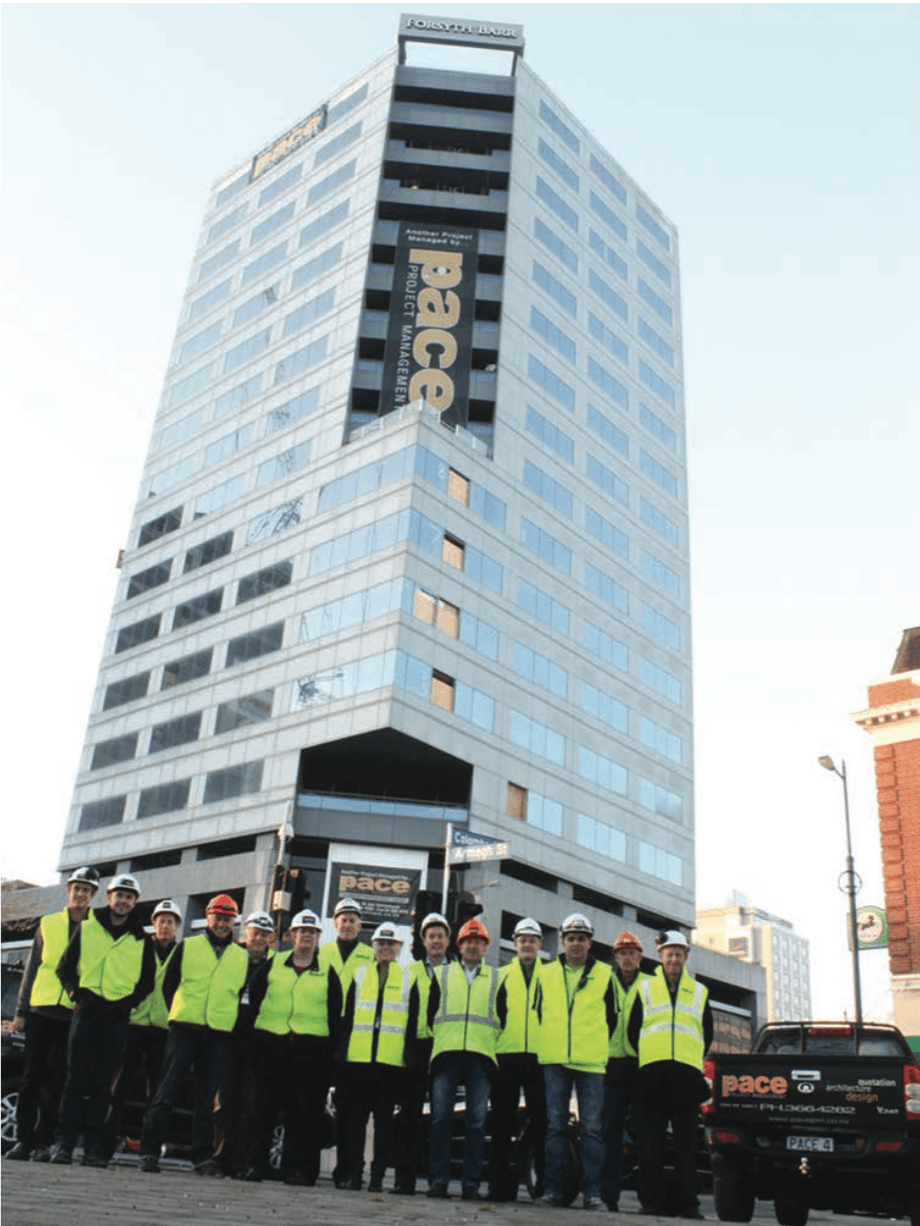
Pace Project Management's offices are situated at Level 3, 112 Tuam Street, PO Box 36-546, Christchurch 8001. If you want your project professionally managed, contactNeil Walker or Andy Christian.
This article was first published in Builders & Contractors Magazine, Issue #111.


